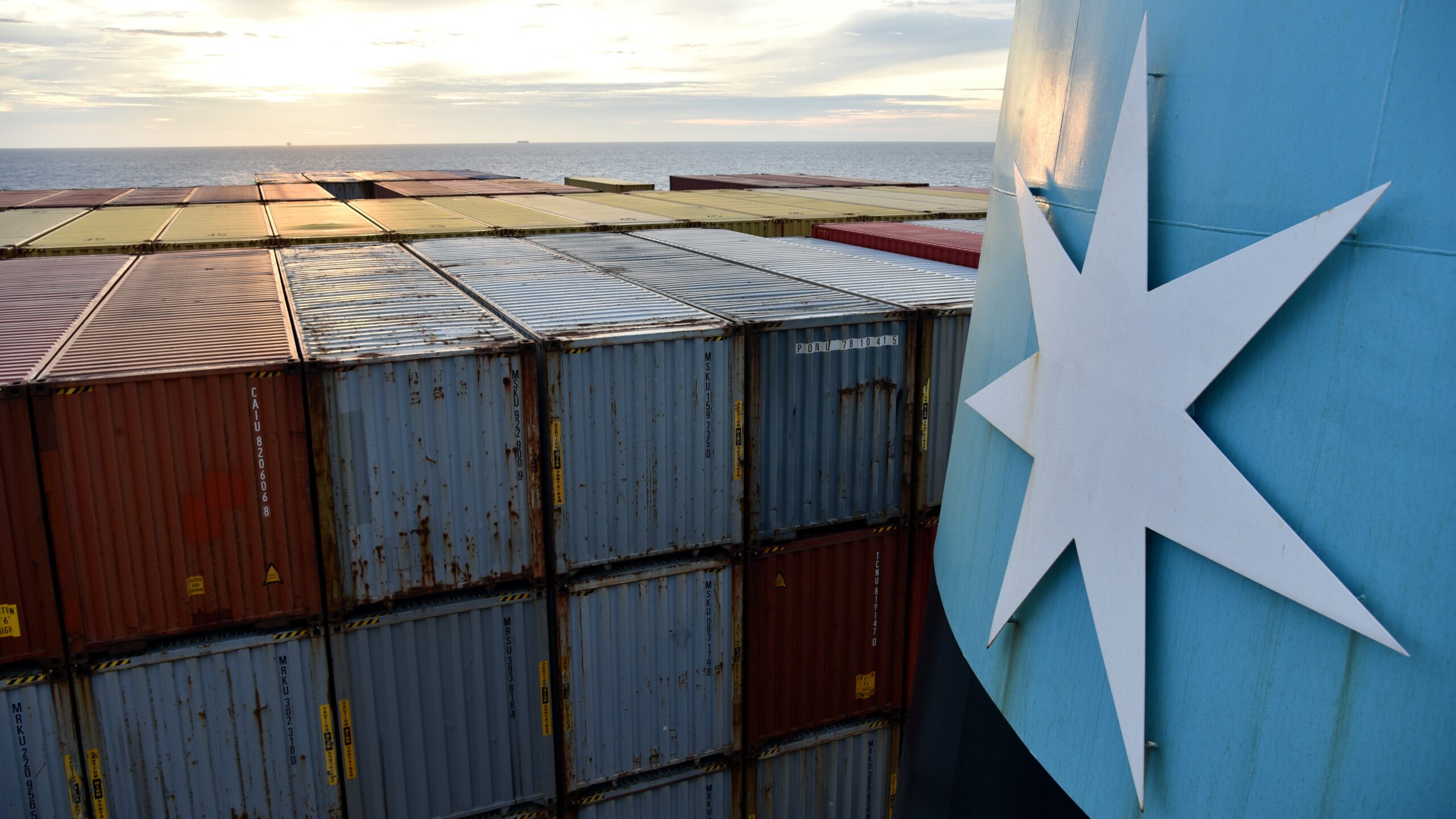Maersk reports further volume increase with 5.7%
Danish shipping conglomerate A.P. Moller – Maersk A/S announced a big upgrade to its full year guidance for the year due to the “exceptional market situation” happening in container shipping as surging demand causes supply chain bottlenecks and a shortage of shipping containers.
In a trading update published late Monday, Maersk said volumes in the first quarter of this year have risen 5.7%, while average freight rates improved 35% compared to the first three months of 2020 when the pandemic shutdowns first started.
Based on preliminary figures, the company has reported Q1 2021 unaudited revenue of $12.4 billion, underlying EBITDA of $4 billion and an underlying EBIT of $3.1 billion.
Looking at the full-year, Maersk said it expects the situation in the market to continue “well into” the fourth quarter, revising its guidance upward across the board by about half, equating to several billions of dollars.
Maersk projects historical results in 2021
“Consequently, given the result in Q1 2021 and the exceptional market situation now expected to continue well into the fourth quarter of 2021, the full year guidance for 2021 has been revised upwards with an underlying EBITDA now expected in the range of USD 13-15bn (previously 8.5-10.5bn) and underlying EBIT expected in the range of 9-11bn (previously USD 4.3-6.3bn),” Maersk said.
Maersk said it now expects free cash flow of a “minimum” of $7 billion in 2021, up from its previous projection of above $3.5 billion. Cumulative capital expenditures (Capex) guidance for 2021-22 has also been raised to around $7 billion from 4.5 to 5.5 billion previously “on back of higher expected capex to provide additional containers to relieve the current bottlenecks and improve service reliability in Ocean and the organic growth in Logistics & Services.”
Maersk is now calling for global market demand growth this year of up to 5-7%, from 3-5% previously, “primarily driven by the export volumes out of China to the United States.”
“Trading conditions for the quarters ahead remain subject to a higher than normal volatility due to potential changes in current demand patterns and the current disruptions in the supply chains and equipment shortages impacting the short-term container freight rates,” Maersk said.


